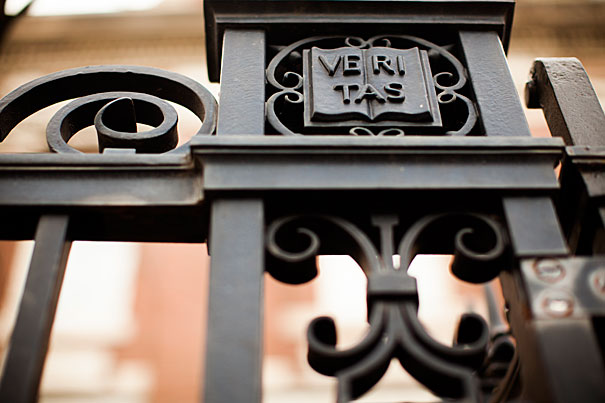
Harvard joined Brown University, Cornell University, Dartmouth College, Massachusetts Institute of Technology, University of Pennsylvania, Princeton University, Stanford University, and Yale University in filing a brief urging the National Labor Relations Board to uphold existing rulings that protect the academic relationship between graduate students and the private universities that they attend.
File photo by Stephanie Mitchell/Harvard Staff Photographer
Harvard joins in filing NLRB brief
University, other private colleges seek to maintain prior ruling avoiding graduate student unions
Harvard University is joining peer institutions in filing a brief today with the National Labor Relations Board (NLRB) urging it to uphold existing rulings that protect the academic relationship between graduate students and the private universities that they attend.
The NLRB is considering two cases concerning whether graduate students at private universities should be considered employees for purposes of forming a labor union. In reviewing this issue, the board solicited comment from interested parties. Currently, the board does not consider graduate students at private universities to be employees. Rulings on the pending cases could reverse earlier decisions.
Harvard joined Brown University, Cornell University, Dartmouth College, Massachusetts Institute of Technology, University of Pennsylvania, Princeton University, Stanford University, and Yale University in filing this brief.
“The decisions in these cases would affect graduate students at Harvard and at every private university,” said Michael D. Smith, Edgerly Family Dean of the Faculty of Arts and Sciences. “We believe that graduate students join a university as students, not as employees.”
Xiao-Li Meng, Ph.D. ’90, dean of the Harvard Graduate School of Arts and Sciences (GSAS), said, “It is a part of GSAS’s mission to help our students complete a rigorous academic program and prepare for success in their future careers. We work very closely with the Graduate Student Council and with GSAS students in general to ensure effective support to their varied experiences in 56 different departments and programs across nine Harvard schools.”
Key points in the brief include:
- Changing a relationship that is fundamentally about education to one that is about employment would be damaging and disruptive to graduate education and the graduate student experience.
- Nothing has changed to warrant reversing earlier decisions that graduate students are students, not employees — neither law, circumstances, nor facts.
- Reversing earlier decisions “would significantly damage private-sector graduate education in this country and will represent an inappropriate intrusion into long-protected areas of academic freedom and autonomy.”
- Citing the experience of New York University: “The only record evidence of private-sector experience bargaining with graduate assistants since the [earlier] 2004 … decision demonstrates the costly and disruptive effect such bargaining has on graduate education.”
- “Both collective bargaining and arbitration are, by their very nature, adversarial. They clearly have the potential to transform the collaborative model of graduate education to one of conflict and tension.”
“Graduate students study in 56 separate and unique programs across the humanities, social sciences, natural sciences, and engineering. At GSAS, we partner with them and provide individualized support that addresses the different circumstances they encounter, both academically and personally,” said Allen Aloise, Ph.D. ’04, dean for administration and finance at GSAS. “We are dedicated to helping our students complete their graduate studies and succeed beyond them.”
There are more than 4,000 students in GSAS. Ph.D. students there benefit from a financial aid package guaranteed for five years that can total more than $250,000 per student and includes full tuition support, stipends, completely subsidized health insurance, mass transit subsidies, support for new parents, and other benefits.
Read the brief here.




